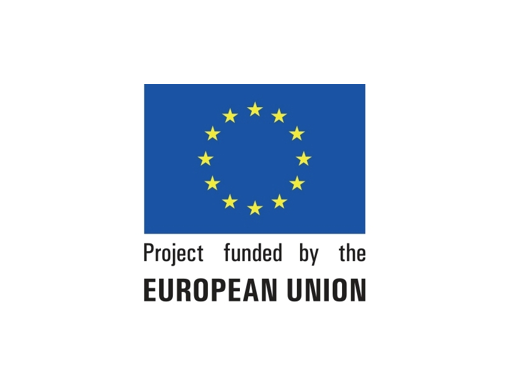.
Project



Project brief
PRIME aims at supporting the gemmology, goldsmith, and silversmith sector, by promoting intergenerational learning. The project will contribute to greater professionalism in new or ambitious young entrepreneurs, in the business management and organizational structure of family-owned SMEs in four countries by improving the lack of knowledge on the part of heads of family businesses regarding the importance of instituting clearer transparent professional management practices and by planning intergenerational business transfer. Basically, the project’s main benefit is that it will contribute to the survival and development of a greater number of family businesses in the concerned regions, and as an experimental model to be redone in other regions.


Partners

Roman Institute for the Entrepreneurial Training – IRFI - Italy

Association of Silversmiths & Jewellery Manufactures – SVA - Greece

Private Vocational Training Institute – MOKUME - Greece

ALEXANDRIDIS & Co. (OMEGA TECHNOLOGY)- Omega - Greece

Chamber of Commerce, Industry and Agriculture of Beirut and Mount Lebanon – CCIA-BML - Lebanon

Business Incubation Association in Tripoli – BIAT - Lebanon

NOTRE DAME UNIVERSITY LOUAIZE – NDU - Lebanon

JEWELLERY TECHNOLOGY CENTRE – JTC - Egypt

Beneficiaries & Objectives
- Beneficiaries
The PRIME project focuses on young new entrepreneurs who are planning to start up a company, or take over an existing one, or have done some recently; young candidates to start a business in the silver/goldsmith and gemmology sectors; family business in the silver/goldsmith and gemmology sectors.
- Objectives
PRIME aims at identifying effective models on how to make use of the ability of senior entrepreneurs, and contribute to the learning and professionalism of younger generations. The project will help develop manageable mentoring schemes for intergenerational learning and transfer of Core Skills in the Gold/Silversmith and Gemmology sector.


Activities and Expected Results
Interviews of senior entrepreneurs and young entrepreneurs:
Core competence analysis of senior entrepreneurs
Interviews that are meant to study the competences that helped the entrepreneurs or managers succeed by introducing proven management skills
Needs analysis of new or aspiring young entrepreneurs
Interviews that are meant to spot competences that young entrepreneurs lack.
Training for future mentors (train the trainers)
The training of business entrepreneurs and experienced managers will focus on the transfer of their essential skills through methodologies. The aim behind such a step is to turn those people into mentors of new business entrepreneurs and business successors. Hence, they become successful business entrepreneurs by acquiring the essential competences or skills.
Mentoring phase
A transfer process for the competences and key processes shall be done between senior managers and young entrepreneurs. Each junior entrepreneur shall be assigned a senior mentor, who will perform a follow-up and guidance for the junior manager to become a successful entrepreneur. These mentoring sessions shall have a 3 month duration.
Test the toolbox
In all partners’ countries, know-how methodologies from senior to junior managers will be tested by the project partners.
Study visits
Study visits will be provided to young people through sub-grants. The study visit is a short stay of three days in a host country for a group of young new or aspiring entrepreneurs engaged in the mentoring program and project staff. The study visit includes presentations and on-site visits to ministries, business and business associations, educational and training institutions, training sites, exchange and sharing of experiences among the young new or aspiring entrepreneurs, etc. The visits will provide a forum for discussion, exchange and learning on themes of common interest and on European and national priorities and the opportunities to create cross borders links with other new or experienced entrepreneurs.
Duration and budget
Project activities will be deployed over a 24-month period from January 2014 to December 2015. Its total budget is € 819,071.00 and it is financed, € 737,163.90 by the European Union through the European Neighbourhood and Partnership Instrument. The ENPI CBC Med Programme aims at reinforcing cooperation between the European Union and partner countries regions placed along the shores of the Mediterranean Sea.
Legal disclaimer
The 2007-2013 ENPI CBC Mediterranean Sea Basin Programme is a multilateral Cross-Border Cooperation initiative funded by the European Neighbourhood and Partnership Instrument (ENPI). The Programme objective is to promote the sustainable and harmonious cooperation process at the Mediterranean Basin level by dealing with the common challenges and enhancing its endogenous potential. It finances cooperation projects as a contribution to the economic, social, environmental and cultural development of the Mediterranean region. The following 14 countries participate in the Programme: Cyprus, Egypt, France, Greece, Israel, Italy, Jordan, Lebanon, Malta, Palestine, Portugal, Spain, Syria (participation currently suspended), Tunisia. The Joint Managing Authority (JMA) is the Autonomous Region of Sardinia (Italy). Official Programme languages are Arabic, English and French (www.enpicbcmed.eu).
This publication has been produced with the financial assistance of the European Union under the ENPI CBC Mediterranean Sea Basin Programme. The contents of this document are the sole responsibility of and can under no circumstances be regarded as reflecting the position of the European Union or of the Programme’s management structures.
For more information, visit the project website www.enpi-prime.eu


